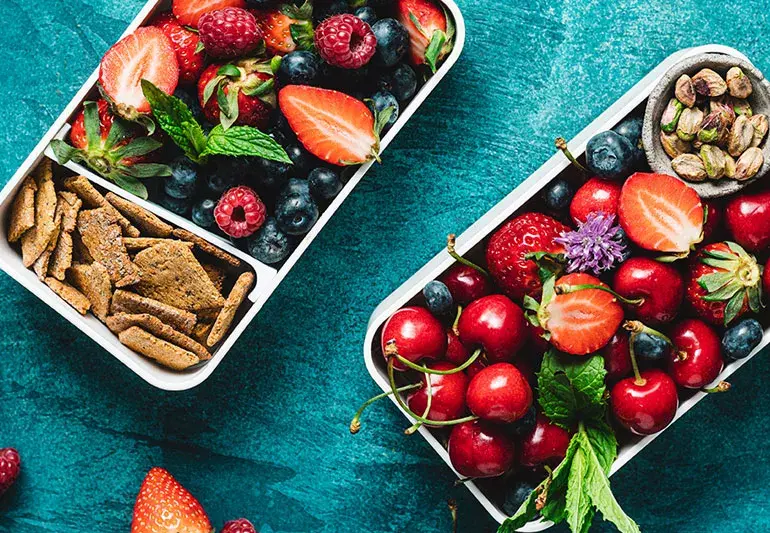
Eat Yourself Slim? Molecules Found in Plants Linked to Reduced Risk of Obesity
by Paz Garcia
Eating polyphenols improves your gut health and could lead to a lower risk of obesity, according to the latest research from TwinsUK.
Polyphenols are molecules found in in high quantities in foods such as fruits, nuts, tea, coffee, vegetables, olive oil and even red wine.
Previous studies have found that higher polyphenol intake is linked with improved gut bacteria diversity and reduced risk of obesity. It has not been clear however whether these associations are due to the polyphenols themselves or the fibre content of the food.
In this study, the researchers investigated whether polyphenol intake was linked with a reduced risk of obesity independently of fibre content. This builds on other recent work led by Professor Tim Spector on the health effects of polyphenols.
The team analysed gut bacteria data from stool samples and food frequency questionnaires from 1,810 female TwinsUK participants.
They found that higher polyphenol intake was linked with a 20% lower chance of obesity, after accounting for fibre content. This was in part due to increased gut bacteria diversity.
First author Olatz Mompeo explained:
“Our findings highlight the potential importance of polyphenol consumption to keep our gut bacteria happy and our bodies healthy. We now need nutrition trials to test these associations and see if they hold true across different ages in men and women.”
Senior author Dr Cristina Menni said:
“Thank you very much to our selfless twins for regularly filling in food questionnaires and donating stool samples. They may not be the most glamorous of tasks, but they make this health research possible, for everyone’s benefit.”
Mompeo et al. Consumption of stilbenes and flavonoids is linked to reduced risk of obesity independently of fibre intake. Nutrients, 2020.
